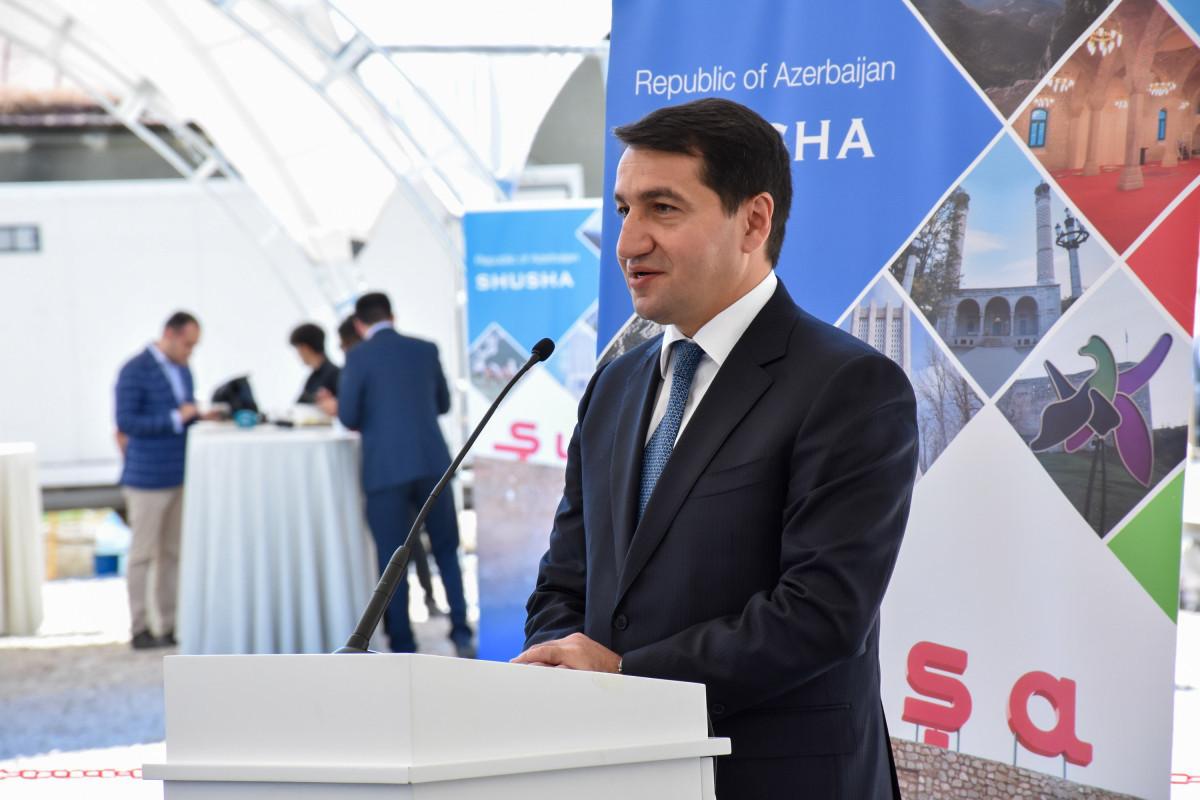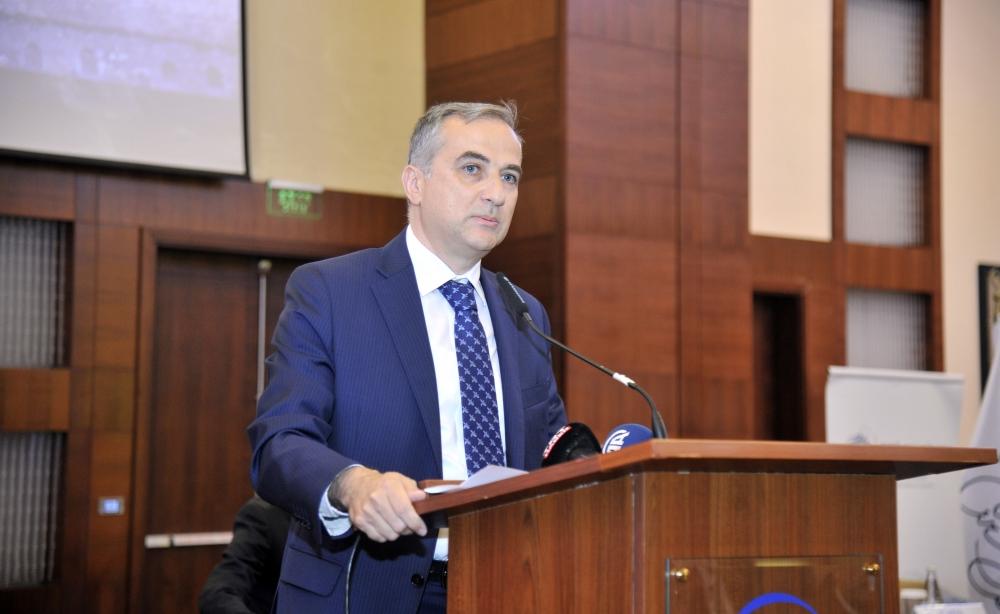Unconditional peace treaty Brussels meeting forecast for Caliber.Az
Today's [August 31] meeting of Azerbaijani and Armenian leaders Ilham Aliyev and Nikol Pashinyan promises to advance the Baku-Yerevan dialogue, especially in terms of preparations for the signing of a peace treaty. Meanwhile, Russian experts are fretting over the postponement of the top officials' meeting from Moscow to Brussels, and Armenian revanchist media are openly crying and moaning - it appears to them that Pashinyan will unconditionally accept Aliyev's demands this time.
Azerbaijani presidential aide Hikmat Hajiyev recently outlined the main topic of today's talks in Brussels. "We hope that the formation of a working group to prepare the text of an Azerbaijan-Armenia peace treaty will be agreed upon at this meeting. But we can see fluctuations on the part of Armenia in terms of this process," Hajiyev expressed Baku's main expectations.

He also stressed that Karabakh is no longer a matter of Azerbaijan's foreign policy, as the OSCE Minsk Group has remained in the past.
"This issue has already been closed for us, now we want to establish civilized relations," Hikmat Hajiyev summed up. And you can hear a lot in the accents of the last phrase, including a sense of Baku's mood – the presidential aide clearly states the goals and is confident in their implementation, implying that Azerbaijan has decided to promote much more active dynamics in the negotiating track to achieve more tangible results. And this is very clear: for almost two years Azerbaijan has been trying to fulfil the points of the Trilateral Statement, encountering Yerevan's complete passivity. This is understandable: the capitulators dislike fulfilling their obligations. However, the period in which Baku allowed Armenia to drag its feet is over, there is no time for sentiment anymore - it's time to act, whether anyone likes it or not.
It is worth noting that the "Revenge" operation very palpably and intelligibly emphasised Baku's position, making it clear that Azerbaijan can be both cautiously diplomatic and force events not only at the negotiating table but also directly on the mountain heights. If, as they say, there are no other options.
Meanwhile, Russia is also aware of the general inertia of the Kremlin, the main guarantor of the Trilateral Declaration and peacemaker in resolving post-war issues. And it clearly contradicts Baku's planned dynamics of actions – our country does not intend to constantly wait and please and now proceeds from the principle of "you can't do it yourself, step back and give another place." Thus, Moscow is increasingly losing ground on the negotiating table, which is happening right in front of our eyes. However, the Kremlin is simultaneously trying to maintain the role of an arbitrator on technical issues – the day before, for example, a joint meeting of two national border delimitation and security commissions was held in Moscow with the participation of Azerbaijani Deputy Prime Minister Shahin Mustafayev and his Armenian counterpart Mher Grigoryan.
Analysing the upcoming meeting of the leaders of the two South Caucasian states, Russian media reach the clear, albeit painful, conclusion that the shift of diplomatic efforts to the European platform is linked to Baku's dissatisfaction with Moscow's mediation efforts. Furthermore, Russian journalists claim that Yerevan is also dissatisfied with Moscow. And, in their opinion, the phone conversation between Pashinyan and Putin did not alleviate the growing tension in Yerevan, which is frequently expressed in the Armenian prime minister's caustic remarks. The Russian media, in particular, cannot forgive Pashinyan for his statement about the allied debt. "Independence is a strong allied relationship for us, but allies are not always only your allies, but also the allies of those who are against us," Nikol Pashinyan recently quipped. In addition, without specifically naming Russia, the Armenian premier once again recalled that he had accumulated questions about allied obligations.
The Armenian revanchist media are generally sad and crying about the upcoming talks, seeing alarming signs and symbols everywhere. They believe if Azerbaijan announces a specific agenda for the upcoming meeting, and Armenia does not, then it means that Aliyev knows exactly what he wants, and Pashinyan "does not want anything", keeps quiet and thus prepares a "defeatist surprise".
Meanwhile, according to Armenian media, the postponement of a meeting of top officials from Moscow to Brussels shows that the Kremlin is clearly losing its role as the main peacemaker.

In an interview with Caliber.Az, political scientist Farid Shafiyev, the director of the Centre for the Analysis of International Relations, pointed out that Baku did not focus on Brussels by accident, and that it did not abandon the Russian platform. And [it chose] Brussels, first of all, because"negotiations were slow" under Moscow's patronage. Baku believes that Europe will have "a significant impact on Armenia as well".
Meanwhile, Shafiyev believes that Azerbaijan should not expect a breakthrough along the Zangazur corridor from today's summit meeting.
"Armenia has only declared its readiness to build a railway. Two issues remain unspecified – the mode of functioning of the corridor itself and the highway. These two fundamental issues have not been resolved," the political scientist said.
As for the stated topic of negotiations, according to the Azerbaijani expert, Baku has already specifically raised the question that it is necessary to work on the text of the peace treaty and create working groups.
"To ensure that Armenia does not delay this issue any longer," he emphasises. Our interlocutor is confident that the issue will be put clearly and categorically so that everything can be completed as soon as possible. All of Armenia's fearful and nervous statements that they will have to "agree and sign everything" should be viewed philosophically.
Shafiyev believes that the peace treaty itself generally corresponds to Armenia's interests.
"Armenia today remains isolated, dependent on foreign patrons, and has no independent policy, including neither military nor economic. So this document will only help her wake up," Shafiyev said.








